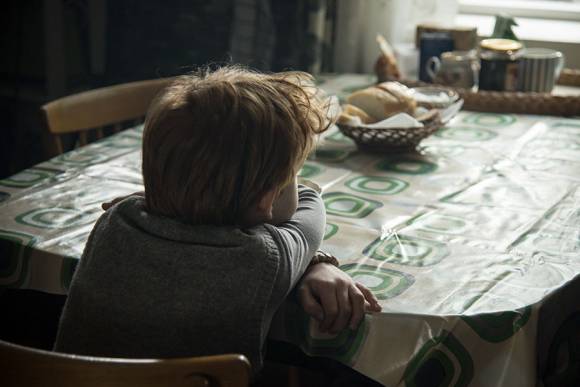In 2018 the Lithuanian Parliament approved a boost to the country’s film production tax incentive, increasing it from 20% to 30%. The new percentage took effect from 1 January 2019 and the legislation has been renewed for the next five years.
World premieres of Lithuanian films took place at prestigious festivals in Karlovy Vary, Locarno, Leipzig, Tallinn, Venice, Moscow, Lübeck, Toronto, Glasgow, Tbilisi and Copenhagen, with the support of the Lithuanian Film Centre. Works from almost all genres – feature films, documentaries, animated films, short films and VRs – were presented to global audiences and contended in competition programmes. The first ever Baltic Film Festival in New York screened notable classic films, the latest feature films, documentaries and animated films from some of the best established and upcoming filmmakers from Lithuania, Latvia and Estonia.
A Lithuanian film week was held in Beijing, retrospective programmes of Lithuanian cinema at Karlovy Vary and Reykjavik film festivals, as well as special events for film industry professionals at Pula, Locarno and San Sebastian film festivals.
In 2017 the Lithuanian Film Centre issued 108 certificates representing a total amount of 8,943,775 EUR in rebates. A total of 47 films used the scheme: eight foreign films, 14 coproductions and 25 domestic films. Their total production costs in Lithuania were 45,494,937 EUR.
PRODUCTION
In 2018 the Lithuanian Film Centre supported the production of 29 feature films, documentaries, short animated films and interactive projects.
Director Lina Lužytė started shooting her second feature film The Castle / Pilis on 28 June 2018. This coming-of-age drama is the first Lithuanian/Irish coproduction, with Lithuanian Artbox producing in coproduction with Samson Films.
Marat Sargsyan also shot his debut feature The Flood Won‘t Come / Tvano nebus, produced by Tremora, in 2018; Tomas Smulkis shot his first feature People We Know Are Confused / Žmonės, kuriuos pažįstam, produced by Just a Moment; Donatas Ulvydas (known for Tadas Blinda. The Beginning produced by Tauras Films, which became the most profitable Lithuanian film at the national box office in 2011) shot the romantic comedy And All Their Men / Ir visi jų vyrai, produced by ACME Film, and Giedrė Beinoriūtė finished her debut drama Breathing into Marble / Kvėpavimas į marmurą, produced by Lithuania’s Just a Moment in coproduction with Croatian Aning Film D.O.O.
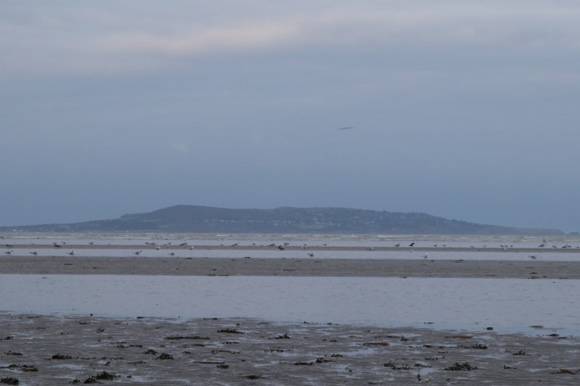 Also in 2018, Jurgis Matulevičius finished his historical psychological drama Isaac, produced by Film Jam and coproduced by Ukraine’s ESSE House and as Poland‘s Takfilm.
Also in 2018, Jurgis Matulevičius finished his historical psychological drama Isaac, produced by Film Jam and coproduced by Ukraine’s ESSE House and as Poland‘s Takfilm.
Mantas Kvedaravičius shot his first feature Stasis, which is a coproduction between Lithuania, the Ukraine and France, produced by Studio Uljana Kim in coproduction with ESSE Production House and Rouge International.
A total of 47 films used the incentives scheme in 2018, including eight foreign films, 14 coproductions and 25 domestic films.
The list of international productions which used the tax incentives scheme in 2018 includes: the five-episode miniseries Chernobyl / Černobylis directed by Johan Renck (the first coproduction between HBO and Sky Television), serviced by Baltic Film Services; The Conductor / Dirigentas directed by Mikael Hafström, produced by the Swedish production company Spark Film &TV and serviced by Dansu; the big-budget docuseries The Last Tsars / Paskutiniai carai directed by Adrian McDowall and Gareth Tunley, produced by Netflix and serviced by Baltic Film Services; Out Stealing Horses / Vogti arklius directed by Hans Petter Moland, produced by 4½ Fiksjon in coproduction with Zentropa Entertainments5, Zentropa Sweden, Helgeland Film, Film i Väst and Nordisk Film, and serviced by Lithuania’s Ahil; the 10-episode TV series The Oil Fund / Oljefonde produced by Zwart Arbeid in coproduction with Motion Blur, serviced by Artbox; the miniseries Catherine the Great / Jekaterina didžioji produced by HBO and Sky, and serviced by Baltic Film Services; Ghost Net / Tinklas vaiduoklis directed by Charlotte Brändström, produced by Daniel Lägersten and Brain Academy (Sweden), and serviced by Dansu; and HBO Nordic's first original series from Norway, Beforeigners / Atvykėliai directed by Jens Lien, produced by Rubicon TV and serviced by Artbox.
DISTRIBUTION
A total of 21 new Lithuanian films were released in 2018, including Giedrė Beinoriūtė’s drama Breathing into Marble, produced by Lithuania’s Just a Moment in coproduction with Croatian Aning Film D.O., Ashes in the Snow / Tarp pilkų debesų directed by Marius Markevičius, produced by the US company Sorrento Productions in cooproduction with Lithuania’s Tauras Films and US Twilight Merengue Studios; Owl Mountain / Pelėdų kalnas directed by Audrius Juzėnas, produced by Lithuania’s Kino gamyba.
ACME Film, which was established in 1999 and is still the largest film distributor in the Baltics, distributes films from Sony Pictures, Warner Bros., Lionsgate/Summit Entertainment and numerous other independent producers. The company distributes the films theatrically, on DVD, VOD and on TV. In 2017, ACME film distributed the Lithuanian feature Ashes in the Snow.
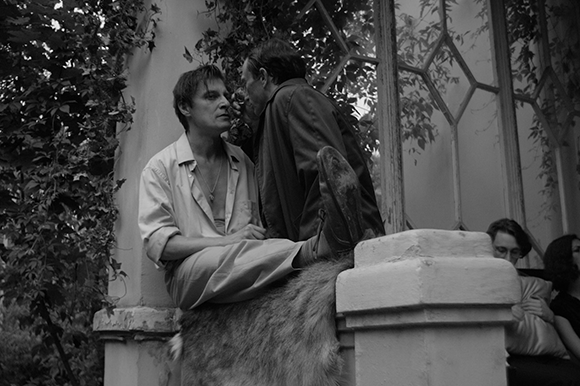 Lithuanian films had a tremendous year at festivals. They were presented to the world and launched on global tours with busy schedules. After screening in the East of the West competition at the Karlovy Vary IFF, Giedrė Beinoriūtė’s drama Breathing into Marble went to the Haifa Film Festival in Israel and the Busan Film Festival.
Lithuanian films had a tremendous year at festivals. They were presented to the world and launched on global tours with busy schedules. After screening in the East of the West competition at the Karlovy Vary IFF, Giedrė Beinoriūtė’s drama Breathing into Marble went to the Haifa Film Festival in Israel and the Busan Film Festival.
Rugilė Barzdžiukaitė’s first long documentary Acid Forest / Rūgštus miškas (Neon Realism) had its world premiere at the Locarno International Film Festival, where it won the Swatch Art Peace Hotel Award in the First Feature category, and afterwards it had its Eastern European premiere at the Ji.hlava IDFF.
Kristina Buožytė’s VR animation project Trail of Angels / Angelų takais had its world premiere at the Venice Film Festival. For the second year in a row Lithuania participated in the Toronto International Film Festival. The 43rd edition of the festival included the world premiere of Marija Kavtaradzė’s debut feature Summer Survivors / Išgyventi vasarą, a 100% Lithuanian production between M-films and After School. The film was screened in the Discovery category.
Works of documentary filmmakers continued their successful journeys through global film events. Mindaugas Survila’s essay The Ancient Woods / Sengirė produced by Sengire, was presented at the Sydney Film Festival, while Arūnas Matelis’ Wonderful Losers: A Different World / Nuostabieji lūzeriai. Kita planeta, produced by Lithuanian‘s Studio Nominum in coproduction with Latvia‘s VFS FILMS, Stefilm International, Associate Directors, DOKMobile, Dearcán Media, Planet Korda Pictures and SUICA Films, was screened at the Belfast “Pull Focus” Documentary Festival, and eventually won the competition programme at the Ulju Mountain Film Festival in Korea.
Wonderful Losers: A Different World directed by Arūnas Matelis was the Lithuanian submission for the 91st Academy Awards, aiming for both Best Foreign Language Film and Best Documentary nominations. The film is a Lithuanian/Italian/Belgian/Swiss/Irish/British/Spanish/Latvian coproduction.
The documentary Bridges of Time directed by Audrius Stonys together with the Latvian director Kristīne Briede, a coproduction between VFS FILMS, Studio Nominum and Vesilind, premiered at the Karlovy Vary IFF in the Documentary Films Competition section and it was also screened at the IDFA in the Masters section.
In 2018 the Karlovy Vary IFF included a retrospective of classics from the Baltics entitled Reflections of Time: Baltic Poetic Documentary.
PÖFF’s competitive programme – First Feature Competition included the world premiere of Ernestas Jankauskas’ Sasha Was Here / Čia buvo Saša produced by Dansu Films.
The 61st edition of DOK Leipzig had Lithuania as the country in focus to celebrate Lithuania’s centenary and displayed the extensive Lithuanian retrospective Challenges of (In)Dependence, which was the biggest national cinema programme in 12 years.
 Lithuanian short films were also screened at international festivals in 2018. Titas Laucius’ Snake was awarded the Cineuropa Audience Award at the FEST – New Directors | New Films in Espinho, Portugal.
Lithuanian short films were also screened at international festivals in 2018. Titas Laucius’ Snake was awarded the Cineuropa Audience Award at the FEST – New Directors | New Films in Espinho, Portugal.
An extensive programme of Lithuanian animated films was presented at the World Festival of Animated Film – Animafest Zagreb,, while Ilja Bereznickas’ animated film The Goat Luck – Bad Luck was screened at the FEST – New Directors | New Films in Espinho and at the 2018 Animix Festival in Tel Aviv. Akvilė Žilionytė’s short film A Piece for Two Hands was presented at the Sound & Image Challenge International Festival in the Macau, China.
The Lithuanian filmmaker Arūnas Žebriūnas’s restored 1969 classic The Beauty / Gražuolė, produced by the Lithuanian Film Studio, ran across French cinemas. It was the first time that a Lithuanian classic film ran in multiple cinemas outside the country. The film’s restoration and digitalisation in 2015 was commissioned by the Lithuanian Film Centre, in cooperation with the Office of the Chief Archivist of Lithuania.
In 2018 the 2nd edition of Baltic Film Days took place in Vilnius, Riga and Tallinn. The 18th goEast festival in Germany put a spotlight on the Baltic States with a symposium, “Hybrid Identities – Baltic Cinema”, dedicated to the national cinemas of Lithuania, Latvia and Estonia, their histories, pursuits of national and cultural identities. The festival’s programme also included some of the key recent titles of Baltic cinema.
The 15th Reykjavik International Film Festival in Iceland dedicated part of its programme to the cinematographies of Lithuania, Latvia and Estonia on the occasion of the centenary of the Baltic nations’ statehood. The special programme “In Focus: Baltic Countries”, put together in cooperation with the national film centres of the three countries, comprised nearly 30 works representing Lithuanian, Latvian and Estonian filmmaking.
EXHIBITION AND BOX OFFICE
There are 84 screens in Lithuania, which is too small a number, according to the Lithuanian Film Centre, in order to provide access to films in smaller cities.
The pan-Scandinavian Forum Cinemas, owner of the largest chain of film theatres in the country (76% of the market share), has six multiplexes with 40 screens, all fully digitalised since 2012. In 2016 Forum Cinemas joined the NCG group, which became a part of the global AMC/Odeon organisation belonging to the Wanda Group since 2017.
The Polish-owned multiplex Multikino, which opened in Vilnius in 2010, has seven screens with 1,673 seats. Baltic Multiplex Ventures, which is the owner of the Cinamon multiplex in Kaunas, invested 1.6 m EUR in its five screening rooms with over 1,000 seats.
Kino Pasaka, which was founded in 2009 as an art house film theatre in Vilnius and is still the only private art house cinema in Lithuania, offers two screens, a VOD platform and also distributes films in Lithuania and the Baltic states. Its VOD platform e.kinopasaka.lt was launched in September 2016.
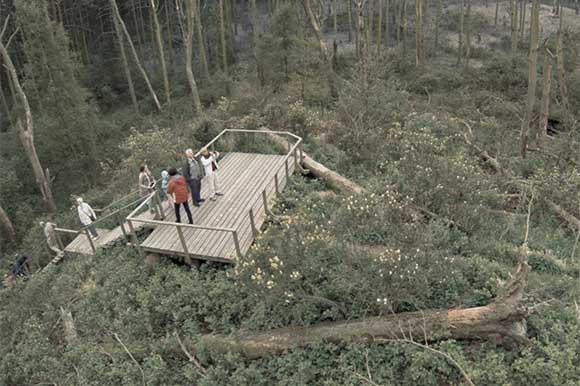 A total of 351 films screened in Lithuanian cinemas in 2018 with 4,266,042 admissions through 31 December 2018, compared to 4,060,159 admissions in 2017. Total gross was 22,444,111 EUR compared to 20,392,625 EUR in 2017. Total admissions increased by 5 percent in 2018 and total gross by 10 percent.
A total of 351 films screened in Lithuanian cinemas in 2018 with 4,266,042 admissions through 31 December 2018, compared to 4,060,159 admissions in 2017. Total gross was 22,444,111 EUR compared to 20,392,625 EUR in 2017. Total admissions increased by 5 percent in 2018 and total gross by 10 percent.
A total of 26 Lithuanian films (including 21 premieres) screened in cinemas in 2018. Sixteen of them were financed by the Lithuanian Film Centre and nine of them used the tax incentives scheme.
Admissions for domestic films increased by more than 35 percent from 860,000 in 2017 to more than 1.17 m in 2018. Domestic films‘ box office increased by 38 percent from 4.5 m EUR in 2017 to 6.25 m EUR.
The average ticket price slightly increased from 5 EUR in 2017 to 5.26 in 2018.
The most profitable Lithuanian film at the national box office in 2018 was Ashes in the Snow / Tarp pilkų debesų, a WWII drama based on the bestseller Between Shades of Gray by Ruta Sepetys. The film directed by Marius Markevičius, produced by Sorrento Productions, Tauras Films, Twilight Merengue Studios and released by Acme Film had 240,880 admissions and 1,295,396 EUR gross since its premiere on 12 October 2018.
The comedy Class Reunion: The Boys Are Back! / Klasės susitikimas: berniukai sugrįžta! directed by Kęstutis Gudavičius and produced and distributed by Vabalo filmai had 182,583 admissions and 1,005,157 EUR gross since its release on 29 December 2017.
The comedy Lithuanian Swingers / Lietuviški svingeriai directed by Tadas Vidmantas, produced and distributed by Vabalo filmai had 111,943 admissions and 645,911 EUR gross, since its release on 25 September 2018.
Women Lie Better: Robert / Moterys meluoja geriau. Robertėlis directed by Andrius Žiurauskas, produced and distributed by Singing Fish, had 107,770 admissions and 595,682 EUR gross since the release on 3 August 2018.
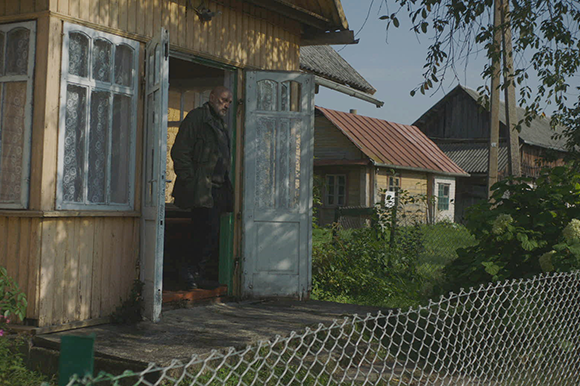 GRANTS AND NEW LEGISLATION
GRANTS AND NEW LEGISLATION
The annual state support for film industry in 2018 was 6,423,000 EUR, compared to 4,619,000 EUR in 2017. In 2018 the Lithuanian Film Centre supported the production of 29 feature films, documentaries, short animated films and interactive projects, as well as the preproduction and script development of 21 projects, the script development of 10 projects and the distribution of 13 films.
The total funding for film production and development provided by the Lithuanian Film Centre was 4,591,831 EUR, compared to 3,599,560 EUR in 2017.
The Lithuanian audiovisual industry depends on funds from the Lithuanian Film Centre, private funds, coproducing with foreign companies and pan-European film support initiatives such as the MEDIA Programme and Eurimages.
The Lithuanian Film Centre was launched in 2012 and is headed by Rolandas Kvietkauskas. The long awaited LFC was set up after extensive lobbying by the Independent Producers Association of Lithuania and the Lithuanian Filmmakers Union. It has had a huge impact on the local industry, which previously lacked a central body to represent it. The LFC primarily finances film development, production and distribution in Lithuania and abroad.
The new Lithuanian incentive scheme became operational in January 2014. The Belgian creative industry consultancy KEA European Affairs conducted, under the commission of the Lithuanian Film Centre, a research to analyse the results of the national tax incentive for film production from 2014 to 2017. According to the research, the period from 2014 to 2017 was particularly productive for the film industry with a growing volume of national productions and coproductions as well as an increasing number of projects implemented by foreign film companies. During this time Lithuania received 24.4 m EUR worth of investment from foreign film producers.
A total of 68 filmmakers benefited from the tax incentives, including 23 films by foreign companies. The Lithuanian tax incentive drew the attention of such companies as the BBC and HBO. The tax incentive also encouraged local investment in the film industry. A total of 8,526,871 EUR was poured into film production by local businesses during the 4-year period.
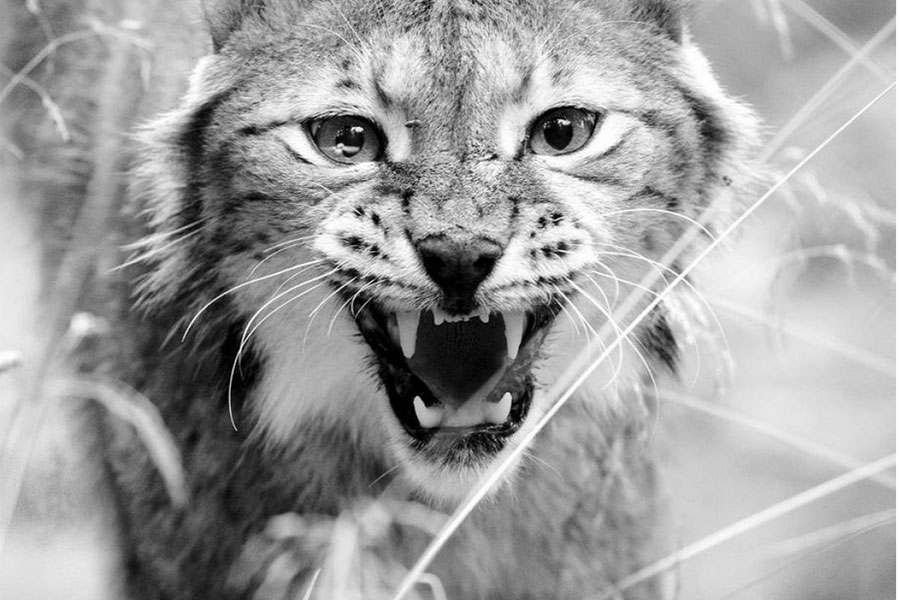 In 2018 the Lithuanian parliament approved a boost to the country’s film production tax incentive, increasing it from 20% to 30%. The new percentage took effect from 1 January 2019 and the legislation has been renewed for the next five-year period. The updated tax incentive is available for fiction films, TV films, documentaries and animated films. At least 80% of eligible film production costs must be incurred in Lithuania and the total amount of eligible spend in Lithuania has to be no less than 43,000 EUR. The incentives scheme is administered by the Lithuanian Film Centre.
In 2018 the Lithuanian parliament approved a boost to the country’s film production tax incentive, increasing it from 20% to 30%. The new percentage took effect from 1 January 2019 and the legislation has been renewed for the next five-year period. The updated tax incentive is available for fiction films, TV films, documentaries and animated films. At least 80% of eligible film production costs must be incurred in Lithuania and the total amount of eligible spend in Lithuania has to be no less than 43,000 EUR. The incentives scheme is administered by the Lithuanian Film Centre.
The Vilnius Film Office was established at the end of 2011. A public non-profit entity, the Kaunas Film Office was established in 2012 as a result of joint efforts between the Kaunas municipality and the Kaunas Cinema Studio. The Vilnius Film Office and the Kaunas Film Office are members of the European Film Commissions Network.
TV
Lithuania’s public broadcaster the Lithuanian National Radio and Television operates three national television channels, three radio channels and an internet portal. It also provides satellite and live internet broadcasts, radio and television podcasts. LRT uses modern computer graphics equipment as well. Studios of 70, 120, two studios of 300 and one of 700 square meters are available. There are also OB stations.
Since 1 January 2015, the Act amending the Law on the Lithuanian National Radio and Television came into force. This act bans commercial advertising on all LRT radio and TV channels, but provides more sustainable funding from the state budget. The assigned funding is based on the state budget revenues from the income tax and the excise revenues received in two previous years. Its operations are overseen by the LRT Council. LRT joined the European Broadcasting Union (EBU) in 1993. LRT provides assistance to foreign broadcasting companies covering events in Lithuania.
TV3 is a television channel owned by Modern Times Group (MTG, Sweden) and targeted at the Lithuanian-speaking audience. It was founded on 7 May 1992 and launched on 11 April 1993 as Tele-3, before becoming TV3 on 8 June 1997. TV3 was the most popular TV station in Lithuania in 2018 and had 2,6 million admissions or 17,8%, according to statistics.
LNK TV, also known as Laisvas ir Nepriklausomas Kanalas (Free and Independent Channel), is one of the major commercial TV channels in Lithuania. It was founded in 1995 as part of MG Baltic Media. It has four sister channels: TV1, Info TV, Liuks! and BTV.
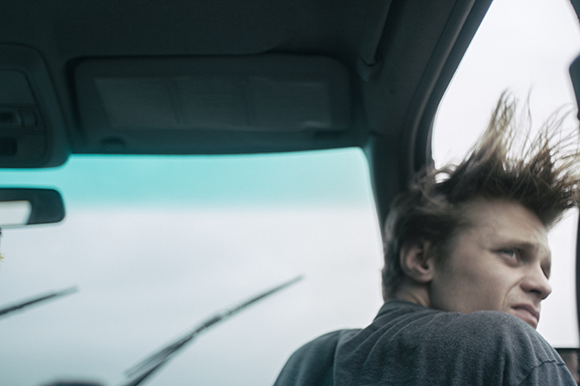 Lietuvos rytas TV is a Lithuanian entertainment channel founded in 2008 and airing approximately 55% of international programmes. In 2008 Lietuvos Rytas TV replaced the Lithuanian station Penktas Kanalas and it is part of the Lietuvos Rytas Media Group.
Lietuvos rytas TV is a Lithuanian entertainment channel founded in 2008 and airing approximately 55% of international programmes. In 2008 Lietuvos Rytas TV replaced the Lithuanian station Penktas Kanalas and it is part of the Lietuvos Rytas Media Group.
Launched in 2002, TV6 is a Lithuanian terrestrial, satellite and cable television channel owned by the Nordic television company Viasat.
In 2018 LRT continued to air the historical drama Partisans. The Price of Freedom / Partizanai. Laisvės kaina directed by Saulius Balandis and produced by Videometra.
Also in 2018 TV3 aired the 11th season of the most popular Lithuanian TV series Women Lie Better / Moterys meluoja geriau directed by Mykolas Vildžiūnas and Andrius Žiurauskas, and produced by Videometra. Women Lie Better is the most popular Lithuanian drama of all time and it is based on a novel by Daiva Vaitkevičiūtė. The series follows four young women and their love interests.
Another very popular TV crime fiction series aired on TV3 in 2018 was Condemn / Pasmerkti directed by Ramūnas Rudokas and produced by Videometra.
LNK TV aired in 2018 the criminal drama series Serious Deal / Rimti reikalai directed by Džiugas Siaurusaitis, produced by Urbs TV.
CONTACTS:
LITHUANIAN FILM CENTRE
Zigmanto Sierakausko g. 15, LT-03105 Vilnius
Phone: +370 5 213 0547
Fax: +370 5 213 0753
Director Rolandas Kvietkauskas
This email address is being protected from spambots. You need JavaScript enabled to view it.
VILNIUS FILM OFFICE
Director: Jūratė Pazikaitė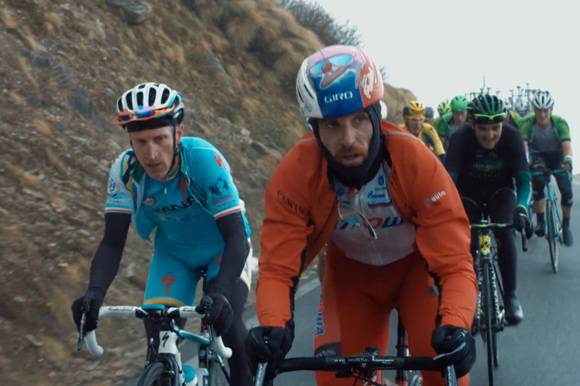 Konstitucijos pr. 3-313
Konstitucijos pr. 3-313
Vilnius, LT-09601
Phone: 85 211 2620
Mobile:. 8 614 04 696
This email address is being protected from spambots. You need JavaScript enabled to view it. , This email address is being protected from spambots. You need JavaScript enabled to view it.
www.filmvilnius.com
KAUNAS FILM OFFICE
Darius Baltušis
Phone: +37069837732
This email address is being protected from spambots. You need JavaScript enabled to view it.
Laisves av. 54, 44246 Kaunas, Lithuania
www.kaunasfilmoffice.eu
Report by Auksė Kancerevičiūtė (2019)
Source: Baltic Films

